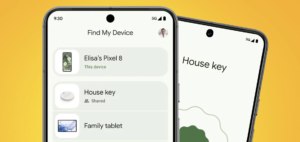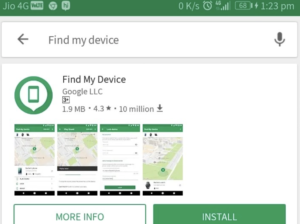Contents
- 1 Android Operating System
- 2 The Early Days of Android
- 3 Android’s Growth and Popularity
- 4 Key Features and Advancements in Android
- 5 Android Versions and Their Notable Improvements
- 6 Android’s Impact on the Smartphone Market
- 7 Android vs. Other Operating Systems
- 8 Android’s Dominance in the Global Market
- 9 The Future of Android
- 10 Conclusion: Android’s Journey and Its Significance in the Tech Industry
Android Operating System
The Android operating system has become an integral part of our digital lives, revolutionizing the way we interact with our smartphones and mobile devices. Developed by Google, Android has grown to become the most widely used mobile OS worldwide, offering a diverse range of features, customization options, and a vast ecosystem of applications.
In this comprehensive guide, we will explore the evolution of Android, its key features, and the strategies you can employ to locate your lost or misplaced Android device. Whether you’re a seasoned Android user or just starting your journey, this article will provide you with the knowledge and tools necessary to take control of your mobile experience.

Find My Android
The Early Days of Android
Android’s journey began in 2003 when a group of engineers, led by Andy Rubin, founded a company called Android Inc. The initial vision was to create a mobile operating system that would challenge the dominance of BlackBerry and Windows Mobile, which were the leading players in the smartphone market at the time.
In 2005, Google acquired Android Inc., recognizing the potential of this innovative platform. The search giant then set out to develop and refine the Android operating system, incorporating its own suite of applications and services to create a comprehensive mobile experience.
Android’s Growth and Popularity
The first commercial Android-powered device, the T-Mobile G1, was launched in 2008, marking the beginning of a new era in the smartphone industry. Over the years, Android has steadily gained traction, attracting a growing number of device manufacturers, app developers, and users worldwide.

Find My Android
Today, Android boasts a diverse ecosystem of smartphones, tablets, and even smart home devices, catering to a wide range of user preferences and budgets. Its open-source nature has encouraged innovation and collaboration, leading to the development of a vast array of applications and customization options.
Key Features and Advancements in Android
Android’s success can be attributed to its robust feature set and continuous improvements. Some of the key features that have contributed to its popularity include:
- Customization and Personalization: Android offers users unparalleled customization options, allowing them to personalize their device’s user interface, home screens, and even system-level settings.
- Multitasking and Productivity: Android’s multitasking capabilities enable users to seamlessly switch between applications, improving overall productivity and efficiency.
- Google Play Store: The Google Play Store provides access to a vast library of applications, games, and digital content, catering to a wide range of user needs and preferences.
- Google Services Integration: Android’s deep integration with Google’s suite of services, such as Gmail, Google Maps, and Google Assistant, enhances the overall user experience.
- Security and Privacy: Android has implemented robust security measures, including regular security updates and the ability to control app permissions, ensuring the protection of user data.
Android Versions and Their Notable Improvements
Over the years, Google has released numerous versions of the Android operating system, each introducing new features, enhancements, and bug fixes. Some of the most notable Android versions and their key improvements include:
| Version | Release Year | Key Improvements |
|---|---|---|
| Android 1.0 | 2008 | Initial release, basic functionality |
| Android 2.0 (Eclair) | 2009 | Improved user interface, better email and calendar integration |
| Android 4.0 (Ice Cream Sandwich) | 2011 | Unified smartphone and tablet experience, improved multitasking |
| Android 5.0 (Lollipop) | 2014 | Material Design, enhanced security and performance |
| Android 8.0 (Oreo) | 2017 | Improved battery life, picture-in-picture mode, and smart text selection |
| Android 10 | 2019 | System-wide dark mode, improved privacy controls, and enhanced gesture navigation |
| Android 12 | 2021 | Material Design 2.0, privacy-focused features, and better customization options |
Android’s Impact on the Smartphone Market
The introduction of Android has had a profound impact on the smartphone market, challenging the dominance of other mobile operating systems and driving innovation across the industry. Android’s open-source nature and its ability to cater to a wide range of device manufacturers have allowed it to capture a significant market share globally.
Android vs. Other Operating Systems
While Android has emerged as the dominant mobile operating system, it faces competition from other platforms, such as Apple’s iOS and Microsoft’s Windows Phone (now discontinued). Each operating system offers its own unique features, strengths, and user experiences, catering to different consumer preferences and needs.
Android’s Dominance in the Global Market
Android’s global market share has consistently remained high, with the operating system powering a vast majority of smartphones worldwide. This dominance can be attributed to several factors, including the platform’s versatility, the wide range of device options, and its affordability, making it accessible to users across diverse economic backgrounds.
The Future of Android
As technology continues to evolve, the future of Android looks promising. Google is committed to enhancing the platform, introducing new features, and addressing user concerns. With the rise of emerging technologies like 5G, artificial intelligence, and the Internet of Things, Android is poised to play a crucial role in shaping the future of mobile computing and connected devices.
Conclusion: Android’s Journey and Its Significance in the Tech Industry
Android’s journey from its humble beginnings to its current position as the leading mobile operating system is a testament to the power of innovation, collaboration, and adaptability. The platform’s ability to cater to a diverse user base, while continuously improving and expanding its capabilities, has solidified its place as a dominant force in the tech industry.
If you’ve lost your Android device, don’t panic! Discover the powerful tools and strategies available to help you locate and recover your lost device by reading our comprehensive guide on “Find My Android.” Take control of your mobile experience and never worry about a misplaced device again.
